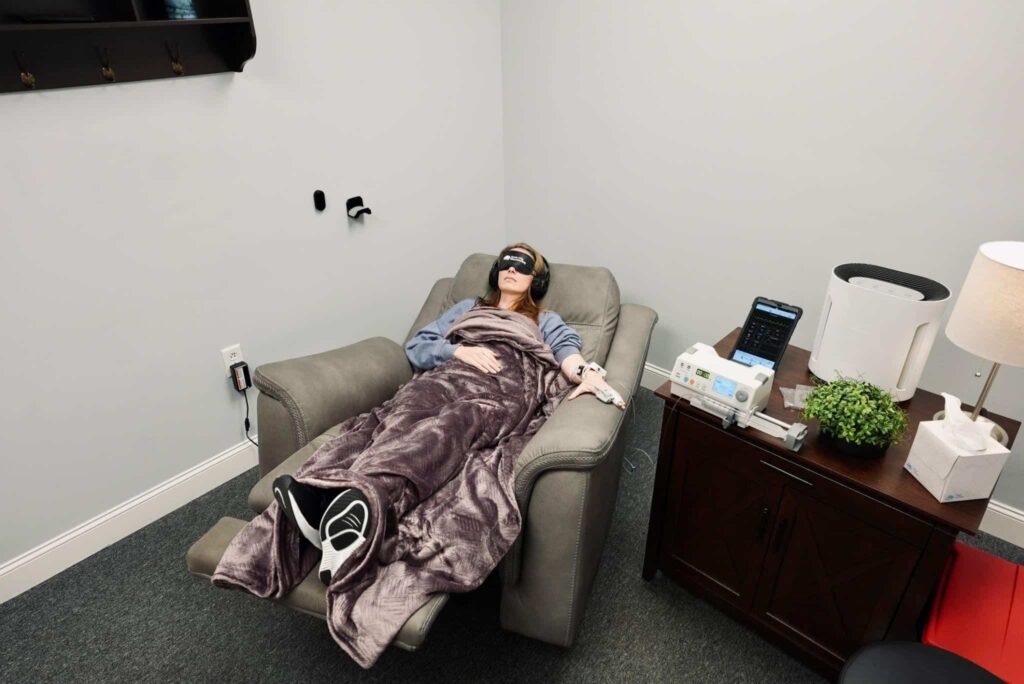When compared to traditional antidepressants, ketamine offers a different approach to treating depression and other mental health issues. This article explores the key differences between ketamine therapy https://www.peacevalleyrecovery.com/drug-rehab/ketamine/ and traditional antidepressants, highlighting their effectiveness, side effects, and how they fit into the larger picture of mental health treatment.
Peace Valley Recovery is a premier outpatient drug and alcohol rehab located in beautiful Bucks County, Pennsylvania. They offer comprehensive mental health and addiction treatment options, providing a serene environment for recovery.
What Is Ketamine Therapy?
Ketamine is an anesthetic that has been used in medical settings for decades. However, its potential as a treatment for depression was discovered only in recent years. Ketamine therapy involves the administration of low doses of the drug to patients suffering from severe depression or other mental health disorders that have not responded well to traditional treatments.
Unlike traditional antidepressants, which typically take several weeks to show effects, ketamine has a rapid onset, often providing relief within hours of administration. This makes it particularly useful for those with treatment-resistant depression or individuals experiencing suicidal thoughts.
How Traditional Antidepressants Work
Traditional antidepressants, such as selective serotonin reuptake inhibitors (SSRIs) and serotonin-norepinephrine reuptake inhibitors (SNRIs), work by balancing neurotransmitters in the brain. These drugs increase the availability of serotonin, dopamine, and norepinephrine, which are thought to influence mood, emotion, and behavior.
While traditional antidepressants are highly effective for many, they often come with a delayed response time, taking weeks or even months to show significant improvement. Additionally, they may not work for everyone, and side effects such as weight gain, insomnia, and sexual dysfunction can deter patients from continuing their treatment.

Effectiveness: Ketamine vs. Traditional Antidepressants
One of the major differences between ketamine therapy and traditional antidepressants lies in their effectiveness and speed of action.
Ketamine Therapy
- Rapid Onset: One of the most compelling advantages of ketamine therapy is its fast-acting nature. Many patients report relief from depressive symptoms within hours of their first dose. This is particularly beneficial for individuals who are in acute distress or are at high risk of suicide.
- Treatment-Resistant Depression: Studies have shown that ketamine is effective in cases of treatment-resistant depression, a condition where traditional antidepressants have failed to provide relief.
- Temporary Relief: However, ketamine’s effects tend to be temporary, requiring repeated doses to maintain long-term benefits. Patients typically undergo several sessions to achieve sustained relief.
Traditional Antidepressants
- Long-Term Effectiveness: Traditional antidepressants are effective for many patients over the long term. With consistent use, SSRIs and SNRIs can help balance mood and prevent depressive episodes from recurring.
- Delayed Response: The primary downside is the time it takes for the medication to start working. Patients often wait four to six weeks to feel any significant change.
- Not Always Effective for Severe Cases: For those with treatment-resistant depression, traditional antidepressants may not provide adequate relief, making alternative treatments like ketamine more appealing.
Side Effects: Comparing the Risks
Side effects are a major consideration when comparing any two treatments. Both ketamine and traditional antidepressants come with their own sets of risks.
Ketamine Therapy
- Dissociation: One of the most common side effects of ketamine therapy is dissociation, or feelings of detachment from reality. While this effect is temporary, it can be unsettling for some patients.
- Risk of Abuse: Ketamine has a history of recreational use and abuse, which raises concerns about its potential for addiction. However, when administered in a clinical setting under medical supervision, the risk is minimized.
- Short-Term Side Effects: Other side effects of ketamine therapy include nausea, dizziness, and increased blood pressure. These typically resolve shortly after treatment.
Traditional Antidepressants
- Common Side Effects: Traditional antidepressants often come with a range of side effects, including weight gain, insomnia, sexual dysfunction, and gastrointestinal issues. For some patients, these side effects are mild, while for others, they can be debilitating.
- Long-Term Use Risks: Prolonged use of traditional antidepressants may lead to dependency, and withdrawal symptoms can occur if the medication is stopped abruptly.
- Lower Abuse Risk: Unlike ketamine, traditional antidepressants have a lower risk of abuse or addiction.
The Future of Mental Health Treatment
As the understanding of mental health continues to evolve, so too does the range of treatments available to patients. Ketamine therapy represents a new frontier in the treatment of depression, particularly for those who have not responded to traditional antidepressants.
Integration of Both Treatments
In some cases, ketamine therapy is used in conjunction with traditional antidepressants to provide rapid relief while the longer-term effects of the antidepressants take hold. This integrated approach can offer patients the best of both worlds: immediate symptom relief from ketamine and sustained mood stabilization from traditional medications.
Peace Valley Recovery is a premier outpatient drug and alcohol rehab located in beautiful Bucks County, Pennsylvania, offering holistic approaches to treatment. Their team integrates innovative therapies like ketamine with more conventional treatments to provide personalized mental health care.
Conclusion
Ketamine therapy and traditional antidepressants both have their place in the treatment of depression and other mental health disorders. Ketamine’s rapid onset and effectiveness in treatment-resistant cases make it an attractive option for many, while traditional antidepressants remain a reliable and well-researched treatment for long-term mood stabilization.
For patients exploring treatment options, it is important to consult with a mental health professional who can tailor a plan based on individual needs. Peace Valley Recovery offers expert guidance in choosing the right therapy, providing compassionate care in their peaceful Pennsylvania setting. Whether considering ketamine or more traditional approaches, the path to healing starts with a personalized and informed choice.




